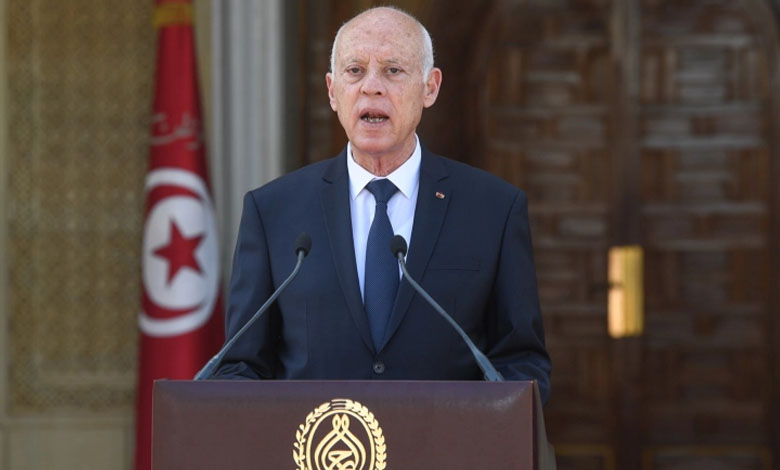After the referendum of the constitution.. What is the next step in Tunisia?

Tunisia has reached an important stage in its political process by turning the page on the Muslim Brotherhood after it held a referendum on the new draft constitution, which was approved by around 93% of voters, according to a poll.
Tunisian President Kais Saied said the first decision after the constitutional referendum would be an electoral law that would “change the shape of the old elections”.
A survey of voters conducted by the Sigma Conseil Foundation showed that 92.3% of eligible voters who participated in the referendum supported Saied’s new constitution. The Supreme Electoral Commission estimated the initial turnout at 27.5%.
Shortly after the poll was published, hundreds of Said supporters flocked to Habib Bourguiba Street in central Cairo to celebrate. They chanted slogans such as “The people want to cleanse the country” and “The game is over.. sovereignty is for the people”.. They also chanted slogans against the Brotherhood and Ennahdha.
Najib Barhoumi, an activist and political analyst, said the turnout rate is high compared to the 2019 legislative elections, and is considered record. He added that despite the hot weather, it did not prevent Tunisians from exercising their electoral duty and voting on a constitution to end the Brotherhood era.
He confirmed that the Tunisian people yearn for a better tomorrow and to defeat the former regime through a popular test and through the ballot box.
With this new constitution, Saied is seeking to establish a sovereign state and end all the loopholes in the 2014 constitution that have led to the growth of terrorism and corruption, he said, adding that Ennahdha has used this constitution to serve its interests.
Some 9,278,541 Tunisian voters were called to vote on the draft constitution, including 348,876 registered voters abroad and 8,929,665 in the country.
Repairing Brotherhood Destruction
The new Tunisian constitution cuts off with a Muslim Brotherhood path that curtails rights and freedoms and sets a law on the size of the organization’s ambitions to drain the state and its people.
The new constitution brings together constitutional law experts as forming and entrenching a break with a constitution drafted and promulgated by the Brotherhood in 2014, and it makes a positive turn for a reform path initiated by Saied since July 25, 2021, and complements his remarks with a referendum on a new constitution to govern the affairs of the state and lift its people out of distress.
The major change to the constitution was a clear endorsement of a presidential system in which the president no longer had the powers of defense and foreign affairs as stipulated in the 2014 constitution, but expanded beyond that to the terms of reference for appointing the government and judges and reducing the prerogatives of parliament.
The President of the Republic has the right to appoint the Head of Government and the other members of the Government on the proposal of the Head of Government. The Constitution also authorizes him to dismiss the Prime Minister without any role in the Parliament.
The president, the commander-in-chief of the armed forces, also has the power to regulate the general policy of the state and determine its basic choices, and his legal projects have the “priority of consideration” by MPs.
Moreover, the legislative function is divided between the Assembly of the Representatives of the People, whose deputies are elected by direct vote for a five-year term, and the National Council of Regions, which includes elected representatives from each region. A law defining its functions will be passed later.
The establishment of this council falls within the framework of President Kais Saied’s vision of the decentralization of the decision, and that solutions for marginalized regions that lack development must be proposed by the people.
The president accepts the government’s resignation after submitting a motion of censure approved by a two-thirds majority of both houses.
He maintained the “freedom of belief and conscience” enshrined in the 2014 constitution.
Chapter 55 provides that “Restrictions shall be placed on the rights and freedoms guaranteed by this Constitution only by virtue of a law and the necessity required by a democratic system and with the aim of protecting the rights of others or the requirements of public security, national defense or public health”.
Although the Brotherhood tried to play on this separation by claiming that it gives the authorities great scope to limit freedoms without censorship, the clarifications of constitutional law experts confirmed that it does not affect freedoms but supports them.
In sum, the new draft constitution provides the legal basis as the supreme law of the country, for a reform path cut short by the era of Brotherhood rule that confounded the state’s wheels and led it to the brink of bankruptcy, striking at citizens’ purchasing power and triggering a crippling crisis.












